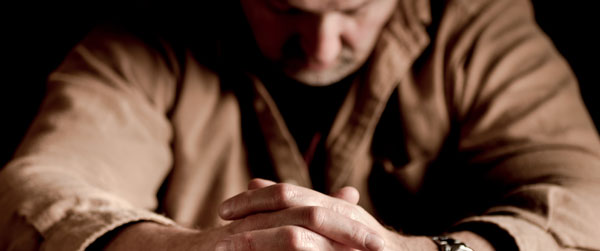Last week, I gave you an introduction on Running to the Wrong Cave, if you missed it you can check it out here: Stop Running to the Wrong Cave – Part 1. This week we are looking at the first of what I call the Three D’s.
The First D: The State of Distress
The English dictionary defines distress as “a feeling of great pain, anxiety, or sorrow. Acute physical or mental suffering. Affliction. Trouble.” However, many Bible commentators agree that the Hebrew term used in 1 Samuel 22 carries an even more acute sense of dire straits, particularly as a result of poverty. This sense of distress would have wide-ranging effects, such as the selling of family members into slavery, the taking of goods and property, and in some extreme cases the taking of a life.
The narrative describes the first portion of David’s renegade horde as those who were in distress. Author Cliff Graham describes them as
“disgruntled outcasts, emerging from an era in Hebrew history where the worship of Yahweh was almost non-existent.”
Graham gives us a bit of insight about why these men might have been expe- riencing extreme distress. They might have been disgruntled warriors who sensed something in David that they respected, believed in, and wanted to follow.
Perhaps they were disgruntled at the fact that the state of their nation was in doubt and God didn’t seem to be with them. The mili- tary was likely in some sort of disarray as David, one of the most popular commanders ever, had left under a dark cloud.
Saul and David
Many of these men saw Saul as a coward; he had hidden from Goliath. The Spirit of the Lord had left Saul. He possessed no anointing from God, and he wasn’t able to lead them bravely in his flesh. Saul’s confidence and passion were gone, and his only weapons were fear and intimidation. If a man was disloyal to Saul, he faced certain death. This madman had tried to kill his most trusted bodyguard, David, at least three times; he even tried to take out his own loyal son, Jonathan, once. He certainly wouldn’t hesitate to skewer someone else.
Saul was most certainly a demon-possessed coward—a spiritually depraved man. This depraved state made him someone to be feared and fled from. Of course this situation was distressing to these men.
I’m sure many warriors in Saul’s kingdom wanted to follow a passionate leader and a giant killer—not someone who had skulked away from a giant. David had shown passion and fearlessness and possessed a magnetism that was otherworldly.
Saul was no real leader at all, but David was. Without a doubt, David was God’s man in their eyes.
But now he was gone, and he had left under a cloud of suspicion. Panic, anxiety, and the effects of distress set in for some of these warriors as they realized that there was no leader for them to follow. And the one they would follow had either been chased out of town or had fled—they didn’t know for sure.
Just as I experienced in my time of distress, the sweating and nausea would come in waves during the daytime, and their minds would be hounded by visions of impending death at night. This meant little or no sleep.
They needed a leader to show them the way out of this anguish. Their panic assaulted them in their minds so vividly that their bodies felt as if it were real. They needed a real leader, and the man for the job was David. But he had escaped and was now in hiding.
The answer? These men decided to escape and hide with him. He would know how to lead them.
Reed, Sarah, and the Wrong Cave
Reed was a good man. He’d been faithful to his wife, Sarah, and was a committed father to his three sons.
Reed had worked quietly at the same job for twenty-five years, but his company was going bankrupt. He was in jeopardy of losing his retire- ment and everything he’d worked for. He was also becoming distant and short-tempered with Sarah and the boys. During this time, Sarah called me and said,
“Pastor Jeff, Reed is drawing away from me and I feel as if I am losing him. He won’t talk to me. He won’t open up anymore and he’s distant. I even think that there might be someone else.”
When I asked why she thought Reed was interested in another woman, she said that she’d caught him on the computer on a social networking site. He was reading a personal message he’d received from a former girlfriend. The letter was about a project taking place to benefit their old high school, sponsored by alumni who used to be student council members with Reed. The woman said because they had been student council members together, she thought he might want to get involved in the project. The words that alarmed Sarah were: “It could be like old times.”
Whether or not Reed was really thinking of cheating on Sarah, I’m glad she caught him. At the very least, Reed was contemplating going to the wrong cave.
What’s the wrong cave?
The wrong cave is a place where we try to escape everything that is actually happening in our lives.
We just hide. In the wrong cave, there’s no focus on being with God and getting the hole inside us filled by Him. In the wrong cave, we just try to hide and we attempt to fill the hole with something or someone else other than God.
When David escaped to the cave, he wanted to get out of Saul’s target range and hear from his close and personal God about what he should do. However, Reed was contemplating helping his old girl- friend, and he had even responded back to her a couple of times to inquire in more detail about the project. Reed was running to the wrong cave because he was hiding something questionable. This kind of hiding has nothing to do with God. Wrong cave. Wrong motive.
In fact, Reed later admitted to me that when he did interact with this old girlfriend, he felt a slight sense of excitement whenever he clicked the send button on the computer screen. They’d had a great relationship in high school, and by the look of her picture on her profile, she’d aged quite well.
He also felt strangely excited that Sarah didn’t know what he was doing. For that matter, he technically wasn’t doing anything wrong. It was all innocent and platonic, he thought. But Reed was at least approaching the entrance of the wrong cave. He was thinking about hiding in the wrong cave of an old relationship that made him feel young again. But any cave that would lead to spending time alone with a woman other than his wife was definitely the wrong cave.
As Reed and I talked about this situation, I learned that he was distressed about his job being terminated. He also hadn’t been feeling very fulfilled in his life lately. He was feeling old, worn out, and not passionate about much in his life. While he might not have used this language, he had a hole inside of him that he was trying to fill with another person and a fantasy of what once was. The old flame contacting him was an invitation, he thought, to feel some passion again and be pursued.
This cave seemed to offer the allure of the old feelings of youth, and it was a welcome distraction from the reality of what seemed like a dull and monotonous life. However, in reality, this cave offered to Reed the potential of an emotional affair and possibly a full-blown adulterous rendezvous. I thank God that Reed got caught heading toward the wrong cave.
A Bright Future
I’m happy to report that Reed and Sarah had a deep talk, shed a few tears together, and their hearts began to be pointed back toward each other.
Instead of running to the wrong cave, Reed stepped into his masculine roles. In Role 1, he went to God alone, asking for help and affirmation that he could only get from His Creator. He allowed God to fill the hole inside. He then stepped into Role 2 as he exercised his masculine presence and took the website off of his computer and took measures to make sure that it would not happen in his home again. He then stepped into Role 3 and entered into community with his wife by being transparent and vulnerable. He also got recommitted to a group of guys who met weekly for CaveTime, telling them of his temptation toward the other cave, asking them to help him stay away from ever going there again.
These men would be a wall for him, and he would once again be a wall for Sarah and his sons.
Are you running to the wrong cave? Have you ever escaped and tried to hide in the wrong cave? I have. In fact, it was the one that landed me in the ER and the ensuing Holy War that I had imagined at the closing table.
For me, the wrong cave was performance. I was addicted to performing and being competitive in most of the areas of my life, and eventually I lost control. I competed for God’s love and acceptance by doing as many religious things as I could—and doing them well, I might add. I was intent on having the most obedient children (and I am sad to say, my motivation was because their behavior was a reflection on whether I was a good parent or not).
Performance
It was all about me. I was also intent on having a great marriage, and if my wife Lori would just fit in and do what a good pastor’s wife was supposed to, people would think well of me—I mean us. Performance, yet again.
Who knows why I ended up this way! But it was all about me, including me heading to the wrong cave. I performed to feel significant and to fill the hole inside with deeds and accomplishments that pointed to me. I was Super Jeff. Well, Super Jeff was in an ER and needed some counseling. But there God was, whispering to me. In my distress, God was calling me to the cave.
When a man wants to know God—and I really did—God won’t let him go on forever in the wrong way, ending up in the wrong cave. Through the darkness and pain, God will draw us to the cave, so that we might hide together with Him.
And yes, assaults will come again and we’ll make mistakes. We will temporarily take other paths again. But once the temporarily misguided man glances back toward the grace-worn path to the cave, even hinting that he wants to come home, God is there.
God reads much into the pained and longing-for-grace-again glances of men. These are glances that motivate Him, faster than the speed of sound, to bum-rush and bowl us over like a grace-filled tsunami—one that’s like Tigger pouncing on Pooh. Like a faithful canine waiting at the front window for his long-gone master to return—kissing him, pouncing on him, and dancing a dance of hope and joy. That giant- killing dance that fills the hole of distress with the hope-giving life of God within a man.
Next week, we’ll look at the Second D: The State of Debt
In the meantime if you need help because you feel you are running to the wrong cave, reach out to me at www.Cavetime.org
EDITOR’S NOTE: Want to learn more about the Three D’s? You can start reading Jeff Voth’s book Cavetime for FREE right here: Cavetime Free Preview or you can pre-order the new book title at: Amazon • Barnes and Noble • Books-A-Million • ChristianBook.com and other fine bookstores!





